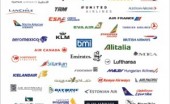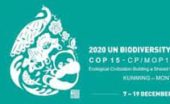Molly Minturn - My family is heartbroken to share that my father died in surgery on Monday, Feb. 10. It…
World Social Forum
Written by Diana Thebaud Nicholson // August 10, 2016 // Globalization // Comments Off on World Social Forum
What is the World Social Forum? The World Social Forum is a place for activists, NGOs, academics and development thinkers to discuss and strategise alternatives to capitalism. The first forum was held in 2001 in Brazil as a counter to the World Economic Forum (The Guardian)
Glavin: My, how far the anti-globalization movement has fallen
(Ottawa Citizen) It took a cartoon appearing in the World Social Forum program in Montreal this week that could have come straight from the pages of Julius Streicher’s Nazi propaganda tabloid Der Stürmer to provide a fleeting glimpse into just how deeply the rot has spread: a hook-nosed Jew vomiting an Uncle Sam caricature, disgorging a long-bearded jihadist.
Put to the crude Khomeinist propaganda purpose of attributing the Wahhabi-inspired terrorism afflicting the Middle East at the moment to the United States and Israel – a lunatic conspiracy theory that enjoys generous toleration among Canada’s self-described “anti-imperialist” activists – it should tell you something that the World Social Forum’s animateurs did not notice anything untoward about the cartoon until it became the subject of a public uproar.
That is how far the “anti-globalization” movement has fallen since the World Social Forum’s first annual gathering in Porto Alegre, Brazil, in 2001. Conceived as an altruistic alternative to the neoliberalism of the World Economic Forum convened annually in Davos, the Forum is now as pleased to draw unambiguously fascist tendencies to its bosom as it is to facilitate note-swapping among vegans who have quarrels with Monsanto’s genetically modified food experiments. …
While we were all being taken in by the elaborate publicity stunt staged in the run-up to the gathering – “Hundreds of Activists Denied Visas to Attend World Social Forum in Montreal” – just one thing that escaped notice was the most prominent conference platforms being offered to the world’s most deranged apologists for the “anti-imperialist” regime of Syrian mass murderer Bashar Assad.
It’s a good thing Concordia University is hosting a Forum-affiliated seminar titled Defeating War: Syria Under Siege, featuring the Lebanese author and analyst Gilbert Achcar, chair of the Centre for Palestinian Studies at the University of London. At least Achcar is a genuine socialist. The Forum’s main-event stupidities include a workshop delineating the “imperialist and colonialist actors” at large in Syria, which is not meant to shed any light on the ongoing atrocities being perpetrated by Russia, Iran’s Quds force, Assad’s barrel bombers and Hezbollah mercenaries – the blood-drenched alliance of which accounts for the overwhelming majority of the nearly half-million Syrian civilian deaths over the past five years.
World Social Forum shifts into gear despite setbacks
The World Social Forum has kicked off a week of anti-globalization workshops for the first time in a G7 nation. But some activists believe the the forum no longer represents its global aims.
Organizers added that this year’s forum will focus on issues, such as the plight of refugees fleeing conflict, income inequality and fair trade.
Meanwhile, Canadian authorities denied visa for more than 230 guests, citing the attendees’ financial situation, travel history and concerns for their departure from the country.
9 August
A very well informed friend of Wednesday Night comments that Ms Traoré is regularly in the Malian news as a far-left activist and was refused a visa to France several years ago after she came out publicly as a supporter (some would say one of the instigators) of the coup and somewhat of an apologist for the coup leader Colonel Sanogo (who is a pretty nasty piece of work with blood on his hands) and adds, she’s not really a serious candidate for the UN SecGen post, although she might get some support from Zimbabwe.
Candidate for UN secretary general among those denied visa to Montreal’s World Social Forum
High-profile Malian activist Aminata Traoré says visa refusals failure of democracy
A candidate to succeed Ban Ki-moon as United Nations secretary general is among those denied a visa by Canadian immigration officials for this week’s World Social Forum in Montreal.
Aminata Traoré, a high-profile anti-globalization activist and a former minister of tourism and culture in Mali, said the visa controversy is a stain on Canada’s reputation as an open country.
“Honestly I wasn’t expecting this,” Traoré told Radio-Canada in an interview.
“Especially since I’ve been to Canada several times to give conferences on the same themes.”
8 August
Henry Mintzberg and “On the Earth, for the Earth”
(McGill) Hundreds of 2016 World Social Forum participants will meet to brainstorm new solutions to climate change on August 10 at Percival Molson Stadium.
This is the wild idea of Henry Mintzberg, internationally renowned management academic and professor of management studies at McGill University.
Over the course of the day, small groups with people from around the world will share insights and build on ideas for creating a cool planet. This day will lead to exciting new opportunities for collective learning that inspires people to take action when they’re back home.
13 July
 The World Social Forum 2016 in Montreal
The World Social Forum 2016 in Montreal
Supported by more than 200 civil society organizations in Quebec, Canada and the world, the candidacy of Montreal for receiving the 12th World Social Forum was formally accepted by the WSF International Council, at the last world Forum, held in Tunisia in March 2015.
The objective of the WSF 2016 Collective is to bring together between 50 and 80 thousand people in Downtown Montreal from August 9 to 14, 2016, including 5,000 representatives of local organizations and global civil society to propose and participate in more than 1,500 self-managed activities.
World Social Forum: On The Earth, For The Earth
By Henry Mintzberg
Have you heard of the World Social Forum (WSF)? It expects to have 20 times as many people descend on Montreal next month, for a little moving and shaking of their own — for example to loosen the roots of what it calls the “crisis of capitalism”. This will be its twelfth bi-annual conference, but the first in the “North”. (Others have taken place in Brazil, India, Tunisia, etc.)
Don’t feel badly if you never heard of the WSF. Recently I gave a talk to 300 people at HEC, Montreal’s main French-language business school. Barely 10 knew about the WSF, let alone that it was meeting soon in their own hometown.
The WSF attracts activists, organizes its conferences around “self-managed workshops” and promotes collaboration — what I like to call commuityship, in contrast to leadership. This is a meet-up of people concerned less about doing deals than about the consequences of such deals.
The WEF conference gets enormous press coverage. The WSF conference has barely received mention in its host city, let alone around the world. If the WEF is about power in the name of change, then the WSF is about change in the face of power.
Here, then, we have the two main models for changing this troubled world, neither of which is working. One fails because it brings together the people who have benefited most from some of our main problems — income disparities, consumptive economics, lopsided globalization. The other fails because it lacks the power, and the attention, to do something about these problems, not to mention its own lack of organization.
2013
16 April
Time to Decolonise the World Social Forum
(IPS) – When participants at the 2011 World Social Forum in Dakar, Senegal, received word that former Egyptian President Hosni Mubarak had stepped down, swept away by a wave of popular resistance that brought millions of Egyptians into the streets, few could contain their joy.
But euphoria was quickly replaced by doubts: what is the purpose of the World Social Forum (WSF)? Is it even relevant anymore? How does it connect with people struggling to survive, and facing the guns on the ground?
“Yet here we are two years later,” said renowned commentator and social scientist Immanuel Wallerstein at the 2013 edition of the WSF in Tunis, “invited by the very people who made this revolution, who want us here, who want us to help strengthen their internal struggle in Tunisia. Is that irrelevant?”
His question points to the need, expressed by scores of participants who gathered here from Mar. 26-30, for serious reflection on the success and direction of the WSF, which has just completed its 13th year.
6 April
At World Social Forum: Unity and Dissent Within Global Movements
(Global Square) An estimated 50,000 people from 5,000 organizations in 127 countries spanning five continents participated in the World Social Forum in Tunisia over the past week. By choosing to come together in Tunis, this year’s forum evoked the spirit of the 2011 revolt that inspired uprisings around the world. But the annual convergence also raised questions about the trajectory of these movements, as well as the continued relevance of the World Social Forum process.
The WSF, which started in Brazil and has featured appearances by Hugo Chavez and Brazilian president Luiz Inácio Lula da Silva in the past years, has been credited with helping to build and consolidate a broad left in South America and establish connections and shared strategy between movements around the world. However, the WSF has always been divided. There are frequent protests against the forum from within – notably in 2007 in Nairobi, when protestors took over a food stand that they said symbolized a corporate sellout by the forum and a lack of accessibility to locals without means – as well as struggles by leadership over its direction.
27 March
World Social Forum begins with march through streets of Tunis
Tunisian revolutionaries, globalisation activists and civil society groups were in carnival mood ahead of the five-day event.
2012
15 October
Media activism in the World Social Forum
(Open Democracy via WSF) ‘Communicate to mobilise to communicate’. The WSF has been referred to as an emergent global public sphere; however, little systematic attention has been paid to how media and communication are implicated in making it ‘global’ and ‘public’.
Since it emerged in 2001 proclaiming that ‘another world is possible’, the World Social Forum (WSF) has been a regular feature of the global civil society landscape. Biennially gathering tens of thousands of activists representing a huge diversity of movements and groups from around the world – most recently in 2011 in Dakar, Senegal – it is widely perceived as having a democratising function, providing a space where previously excluded voices can come together and debate alternatives to neoliberal capitalism.
29 January
World Social Forum calls for global anti-corporate protest in June
(AFP) Thousands of critics of capitalism meeting in Brazil called Sunday for a worldwide protest in June to press for concrete steps to tackle the global economic crisis.
The World Social Forum wrapped up a five-day meeting in this southern Brazilian city, urging citizens to “take to the streets on June 5″ for the global action, which would be in support of social and environmental justice.
The forum also announced a “peoples’ summit” of social movements to be held in parallel with the high-level UN conference on sustainable development scheduled next June 20-22 in Rio.
18 February 2011
World Social Forum: grassroots Africa takes centre stage
The future of African social movements dominated discussions at the forum in Dakar, Senegal, last week



